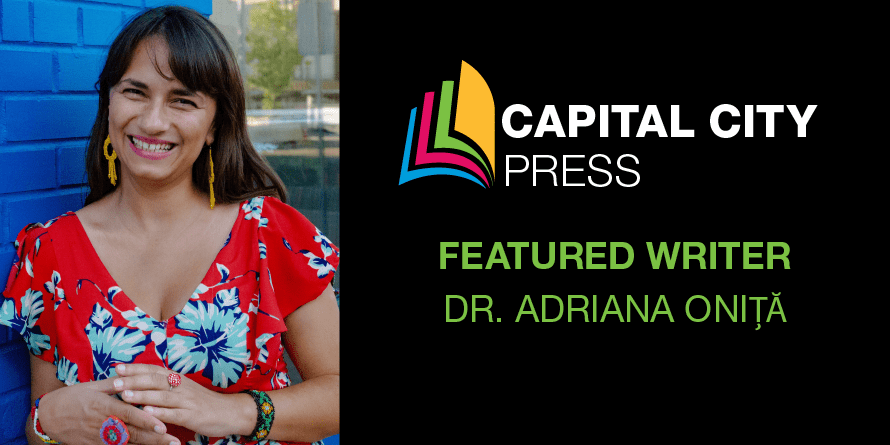Who is The Polyglot for? Most readers don’t speak all foreign languages, so how can they understand or enjoy what you publish? In a bilingual country, don’t you think your magazine is too niche — why focus on publishing works in other languages if they can’t be appreciated by all? These questions I am asked almost every time I speak about The Polyglot, a multilingual magazine of poetry and art that I founded in Edmonton in 2016.
I find these questions fascinating and troubling because they reveal hidden assumptions we hold about writers, readers, publishing, languages, and even the history of this officially bilingual-yet-multicultural nation. For example, what do words like “foreign” or “other” do? How are they entangled with assimilative practices from ongoing settler colonialism on this land? Who do publishers serve? What happens when Indigenous and heritage (immigrant) languages are left out of equity, diversity and inclusion initiatives?
Although Canada is a linguistically diverse country, where 213 languages are spoken, and one in four people report a “non-official” mother tongue (Statistics Canada, 2017), literary gatekeepers are mostly monolingual and some do not see the value — cultural, economic, or intellectual — in publishing works in, or featuring, languages other than English or French. Most publishers in Canada exacerbate linguaphobia (the fear of languages) and linguicide (the killing of languages) by choosing not to accept or acquire multilingual works or works in translation.
As a poet and researcher working in five tongues (Romanian, English, Spanish, Italian and French) and often code-switching between them, my work has often been rejected based on that fact alone. In one of my poems called “Pălăvrăgeală,” I collected verbatim reactions to my writing from peers and publishers. For instance: “Not translating the Romanian seems arrogant. Personally, I would want my writing to be understood.” What does this comment reveal about this person’s biases or about the society that raised them? What leads them to think that the reader is not multilingual — or at least curious enough to spend 10 seconds reaching for their cell phone to try translating a phrase?
One of the most intriguing reactions to my work came from a monolingual Alberta author I admire and respect, who said, “I don’t feel like I’m the audience for this poem. I don’t feel invited in.” M-am gândit luni de zile la această reacție. It made me reflect about: What are the responsibilities of a writer to ensure a reader feels invited, held, respected, and even loved? And what are the responsibilities of a reader in exploring their discomfort, challenging their aversion to “other” or “foreign” languages, and holding space for the dissonance and ambiguity that may arise?
Even when my poems and essays are accepted for publication, I encounter resistance to the way my words behave on the page. Editors advise me to italicize “non-English” words and add translations, footnotes, or a glossary to avoid “alienating” the reader. As Haitian-Canadian writer Medgine Mathurin shared in the third issue of The Polyglot, “I find myself carrying the burden of translation, something that is not reciprocated on the side of strictly English speakers. This burden often comes across subtly and implicitly as a demand from this English-speaking world. I think Canada can better support multilingual voices in our community by taking ownership of the work to understand languages that are not English.”
What does it mean to take ownership of the work to understand languages? What kind of interlinguistic solidarity might emerge if we put in the effort to support those revitalizing their Indigenous languages creatively or maintain their family’s tongues? Mathurin continues: “If there were more spaces and opportunities to share words that are not in English, without placing the entire burden of translation onto the speaker of this foreign language, I believe there would be very powerful and unique solidarity that would transcend any diction. I also believe that those whose tongues carry words that are not in English would find more joy in giving.”
Anyone who has attended an event organized by The Polyglot feels that joy in giving and receiving literature and art in multiple tongues. I believe that all journals, lit mags and presses should work towards promoting texts in translation, accepting works in multiple languages, and even works that are written in languages other than colonial/colonizing tongues. This would help with both Indigenous language revitalization and intergenerational immigrant language maintenance.
Un lucru este sigur: a decade of conversations with other writers has taught me there is immense interest in both creating and experiencing multilingual literature. The proof of the pudding is in the eating. In our first 10 issues, The Polyglot has published 188 writers, poets, artists, and translators, experimenting with 51 Indigenous and heritage languages. We are receiving recognition for our hard work, such as being named Alberta’s Best New Magazine in 2021 by the Alberta Magazine Publishers Association and receiving funding from the Edmonton Arts Council to expand our mission and publish debut chapbooks by five local authors Karrie Auger, Luciana Erregue-Sacchi, Medgine Mathurin, Candice Joy Oliva, and Gian Marco Visconti. We invite all creatives — from polyglots to curious monolinguals — to join us in our monthly Multilingual Art Lab on Zoom to keep this conversation going.
_______________________________
Adriana Oniță is a poet, artist, educator, and researcher. Her poems have appeared on the CBC Poetry Prize shortlist, The Globe and Mail, and in her chapbook Conjugated Light (Glass Buffalo). Adriana is the founding editor of The Polyglot (thepolyglotmagazine.com) and the editorial director of the Griffin Poetry Prize. To find out more about her work and research, visit adrianaonita.com. This article originally was published in the Writers’ Guild of Alberta WestWord magazine in spring 2023.
Reference
Statistics Canada. (2017). Census in brief: Linguistic diversity and multilingualism in Canadian homes. 12.statcan.gc.ca/census-recensement/2016/dp-pd/dv-vd/lang/index-eng.cfm



Add a comment to: Every Publisher Should be Multilingual